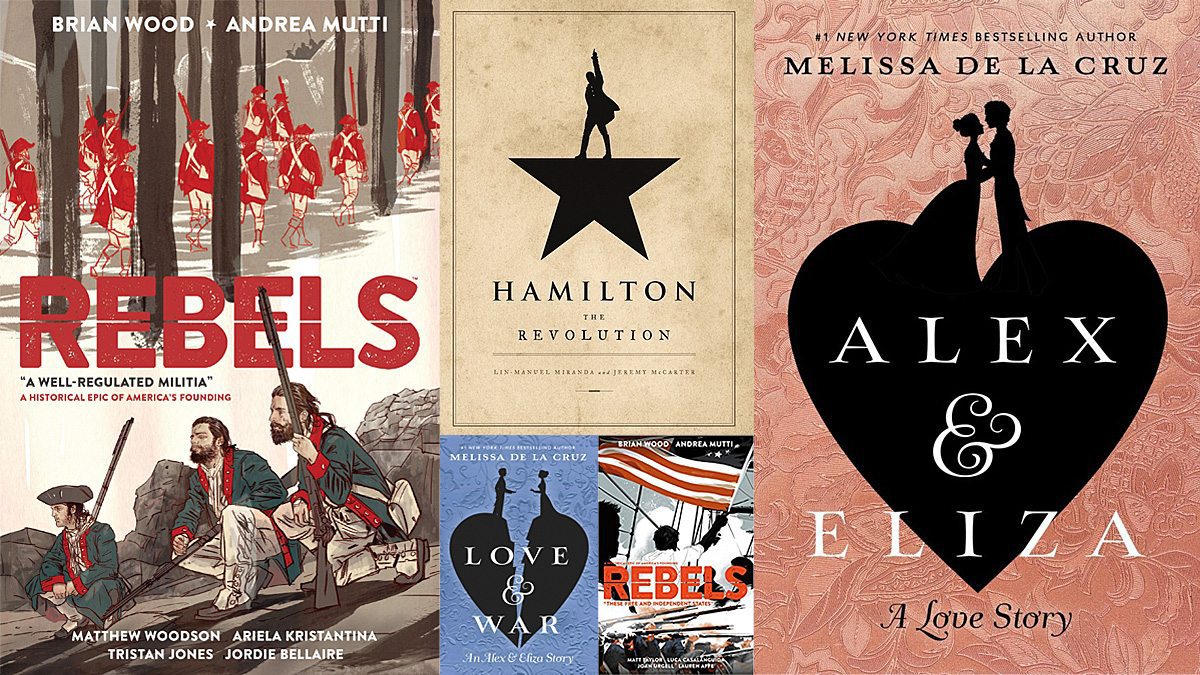
Here comes Colonial New England history in comic form, part II!
Earlier this year, the second book in the Colonial Comics series, Colonial Comics: New England: 1750-1775 (edited by Jason Rodriguez), came out, and it’s as wonderful as the first. It’s filled with little-known stories about the U.S.’s Colonial period that are well written and accompanied by powerful illustrations and imagery. Since I originally came across the first Colonial Comics book, which covered New England from 1620-1750 (read my review here), I discovered a new favorite podcast, Ben Franklin’s World, which generally covers the Colonial period of North America as well. Thus, I had many more facts at my disposal when I read the second volume compared with when I read the first. (I know that a third volume is also planned, but that’s still in the planning stages.) Thus, more of the stories in the second volume had bits that were familiar to me, but most of it was new information.
This second volume follows the same general format as the first one: a collection of writers and comic book illustrators have gotten together to tell lesser-known stories from this period in history. The book is square and heavier than you’d expect, as the pages are printed on thick, quality paper. Though it’s paperback, it has a substantial presence.
The beginning of the book includes an old map of the New England/New York area, in color. Then the table of contents lists the 25 different stories and spotlight characters and concepts included in the book. Then you get to the comics portion, which I’ll go into below. The back matter begins with a short section on the importance of newspapers during this era (spoiler: they were extremely important). Next comes an extensive bibliography for all of the comics, which can also be used as a “to be read” list for those of you interested in learning more about the stories covered. Finally, there are detailed bios for all of the contributors. The book, especially the non-illustrated pages, have an old, Colonial feel to the text and background. This was intentional. Now, on to the comics!
Anyone can learn about the names and dates of famous people and events. Every textbook we know covers that material. But what makes history really interesting, once you know the overview, are the stories in between. The people who aren’t so famous. The important, but for some reason overlooked, events. This book focuses on these people and events that normally are glossed over during regular history study, the ones in the shadows that support the more “traditional” timeline, but we have no idea they are there.
Colonial Comics 2 not only tells stories that you weren’t taught in school, it also tackles important pieces of history that are adjacent to the well-known ones. For example, you know about the Boston Tea Party, what happened, who was involved. But, do you know where the tea came from? Or why this event was such a significant one? It’s a complicated and multi-faceted story that’s covered in this book. What about learning some history from the Loyalists’ perspective? Perhaps they had some valid points. But we wouldn’t know that from grade school. Many of these stories have gotten lost in the oversimplification of history education over time. Fortunately, Colonial Comics is here to help fill the gaps.
The American Revolution didn’t just begin overnight. A whole lot of events, public opinion, and a growing divide between the separatists and Loyalists fed conflict and skirmishes that eventually led to all out war. In this book, you will learn of the Triangular Trade (think: slaves, sugar cane, rum, etc.), how Benjamin Franklin rose to prominence as a newspaper printer, Nathan Hale’s pranks while attending Yale, the gifted African-American poet Phillis Wheatley, and so many other topics. Read through these important volumes and you’ll come away with a new appreciation for the Colonial period, as well as a fuller idea of what life was like back then, on all sides and from many different perspectives, including from Native Americans.
Some of the stories in this book are straightforward and to the point. But others are more complicated or have denser text that not only requires a closer read, but also affords more opportunity for further research. Fortunately, there is the aforementioned healthy bibliography in the back of the book for further reading, for those interested.
I find that having so many different authors and illustrators in one volume adds, in a good way, to the complicated stories the volume shares. By having each one written and drawn by someone different, these real-life stories from sometimes vastly different perspectives are given a unique voice and artistic perspective as well. And, for someone like me who isn’t a regular comics reader, I get to enjoy many new types of illustration.
I also loved the brief essay on newspapers near the back of the book. It shows off and explains the book’s borrowed engravings, along with a URL of where to find Colonial-era newspapers to read through yourself. The Colonial era was a brand new age, one of the newspaper. Newspapers helped spread information and opinion, galvanize support, and help colonists choose sides. Colonial Comics 2 is made to look a bit like a newspaper, using proper fonts, engravings, and columns. I highly recommend you give it a look.
Colonial Comics: New England: 1750-1775 is available now. It’s perfect for anyone who loves comics, American history, obscure history, or just fascinating stories told to great art. It’s quite affordable, and pairs perfectly with the first book in the series, Colonial Comics: New England: 1620-1750. I’ll be having my kids read them as part of a history lesson in the upcoming year.
If you love Colonial Comics, I also highly recommend listening to the Ben Franklin’s World podcast, done by Liz Covart. Read my interview with Liz here.
Note: I received a copy of Colonial Comics: New England: 1750-1775 for review purposes.




